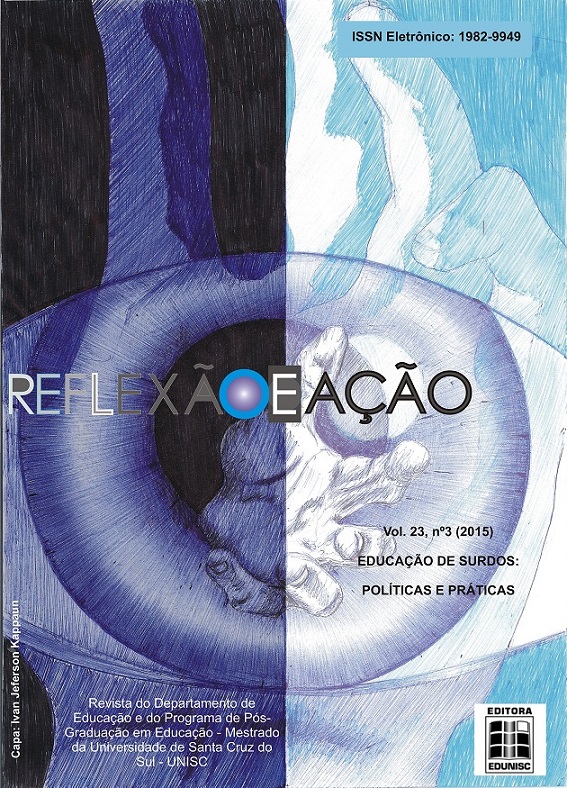MATHEMATICS FOR CITIZENSHIP: CURRICULUM DISCOURSES ABOUT MATHEMATICS EDUCATION FOR THE DEAF
DOI:
https://doi.org/10.17058/rea.v23i3.6383Keywords:
Cultural Studies, Mathematics Education for the Deaf, Brazilian Sign Language, Deaf Identities, DiscourseAbstract
This paper analyzes discourses about Mathematics Education and the way that they have constituted the practices developed with deaf students. As our analysis material, we considered both the National Curriculum Guidelines of the area of Mathematics for Elementary Education and the Political-Pedagogical Projects of three schools for the deaf. The analyses were grounded the notion of discourse developed by Michel Foucault (1996). We also established a dialogue with Viana & Barreto (2014) and Borges & Nogueira (2013) to think about Mathematics Education, and Hall (2000), Thoma & Klein (2010) and Thoma (2012) to discuss about identities, deaf difference, curriculum, culture and power. The discourse evidencing that the deaf subject should construct mathematical knowledges to become a participatory, critic, fair and autonomous citizen is often seen in the analyzed Guidelines and Projects. Therefore, our focus here is on the discourses about Mathematics for Citizenship.Downloads
Downloads
Published
How to Cite
Issue
Section
License
The submission of originals to this journal implies on the transference, by the author(s), of the printed and digital publishing rights. The author´s rights to the published articles are the author´s, the journal has the rights over the first publication. The author(s) can only use the same results in other publications, indicating clearly that this journal was the original publisher. Since we are an open access journal, the free use of articles is permitted for educational and scientific applications, as long as they inform the source according with the CC-BY license from Creative Commons.


